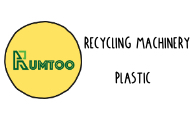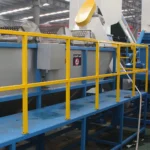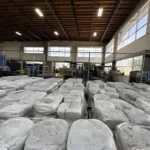Plastic recycling is a crucial part of sustainable waste management, but have you ever wondered what influences the prices of recycled plastics? This article explores the key factors that determine plastic recycling prices, offering valuable insights for both businesses and consumers.
Market Demand for Recycled Plastics
Supply and Demand Dynamics
The fundamental law of supply and demand plays a significant role in determining the prices of recycled plastics. When the demand for recycled plastics is high, prices tend to increase. Conversely, when demand is low, prices decrease.
Industrial Applications
Various industries, including packaging, automotive, and construction, drive the demand for recycled plastics. As more companies commit to sustainable practices, the demand for high-quality recycled materials rises, pushing prices higher.
Quality of Recycled Materials
Contamination Levels
The quality of recycled plastics is heavily influenced by contamination levels. Clean, well-sorted plastics fetch higher prices compared to contaminated or mixed materials, which require more processing.
Type of Plastic
Different types of plastics have different values. For instance, PET (Polyethylene Terephthalate) and HDPE (High-Density Polyethylene) are more valuable and sought after in the recycling market compared to other plastics like PVC (Polyvinyl Chloride) and LDPE (Low-Density Polyethylene).
Impact of Global Economic Trends
Oil Prices
Since virgin plastic production is closely tied to crude oil prices, fluctuations in oil prices can significantly impact the cost of recycled plastics. When oil prices are low, virgin plastic becomes cheaper, reducing the demand for recycled alternatives.
Trade Policies
Global trade policies and regulations can also affect plastic recycling prices. Tariffs, import/export restrictions, and international agreements play a role in determining the flow of recycled materials across borders.
Avansuri tehnologice
Recycling Processes
Innovations in recycling technologies can reduce costs and improve the efficiency of plastic recycling, potentially lowering prices. Advanced sorting and processing techniques enable better recovery of high-quality materials.
Practici durabile
As technology advances, more efficient and eco-friendly recycling practices emerge. These practices not only improve the quality of recycled plastics but also make the recycling process more cost-effective.
Government Regulations and Incentives
Environmental Policies
Government regulations promoting recycling and reducing plastic waste impact recycling prices. Policies such as landfill taxes, recycling mandates, and bans on single-use plastics can drive demand for recycled materials.
Financial Incentives
Subsidies, grants, and tax incentives for companies that invest in recycling infrastructure can lower the operational costs of recycling, influencing the overall prices of recycled plastics.
Concluzie
Understanding the factors that determine plastic recycling prices is essential for businesses and consumers alike. Market demand, the quality of recycled materials, global economic trends, technological advancements, and government policies all play a crucial role. By staying informed about these factors, stakeholders can make more strategic decisions and contribute to a more sustainable future.
Reproducerea nu este permisă fără permisiune.:Mașini de reciclare Rumtoo » Ce determină prețurile de reciclare a plasticului?

 Mașini de reciclare Rumtoo
Mașini de reciclare Rumtoo Întrebați acum
Întrebați acum 



